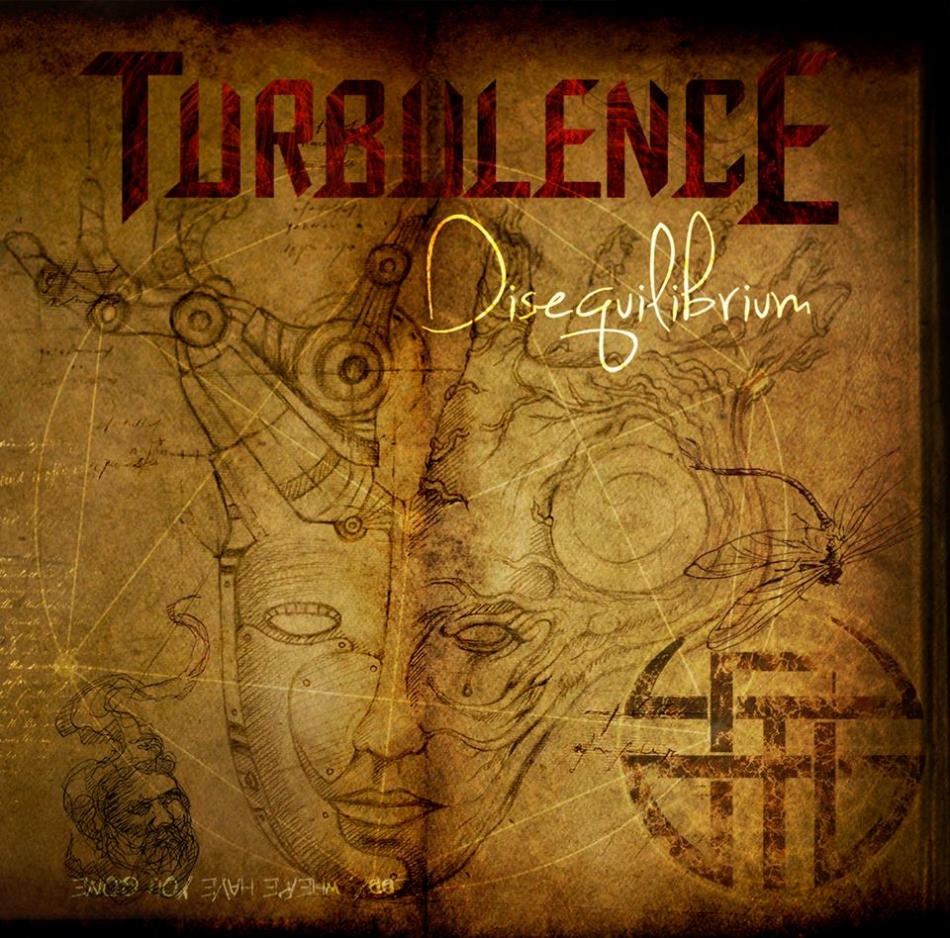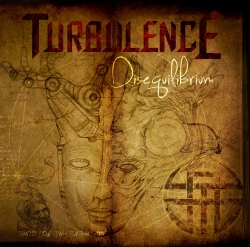Founded roughly three years ago in Lebanon, progressive metal quintet Turbulence is nothing if not ambitious. Following in the footsteps of notable acts like Dream Theater, Opeth, Symphony X, and even Ayreon, the fivesome (vocalist Owmar El Hage, lead guitarist Alain Ibrahim, keyboardist Mood Yassin, bassist Charles Bou Samra, and drummer Sayed Gereige) set its sights high on delivering a worthy debut disc with <b>Disequilibrium</b>. Fortunately, they succeed with flying colors, as the collection is immensely inventive, grandiose, and appealing (despite its similarities to the aforementioned influences). The Middle East may not have an expansive progressive metal scene yet, but with bands like Turbulence on the horizon, it’s definitely got some stellar genre ambassadors.
“Hypnagogia” (a term for transitioning from wakefulness to sleep) starts things off with bombastic agency. Feudal orchestration (including percussion, strings, and woodwinds) mesh with luscious choral chants before giving way to delicate piano chords and forceful dual guitar lines. It transforms into “Richardson’s Nightmare,” whose opening riffs evoke the power of Dream Theater’s “The Dark Eternal Night.” It’s complemented by symphonic keyboard swirls and devilish syncopation. In addition, the stylish passion El Hage brings to the table fits well. He manages to sound classy and confident without falling prey to the shrill shrieks or bleak gruffness that befalls many of his peers. Aside from these qualities, the track also contains some stellar guitar and keyboard solos, as well as some interesting tonal shifts, making it a fine way to open <b>Disequilibrium</b>. In particular, its closing piano instrumentation is gorgeous and tragic.
In contrast, “Never Let Me Go” is a ballad with lovely layered vocals and an inviting tempo. It’s also quite atmospheric and elegant, with warm acoustic guitar fills decorating the aural scenery. Also, its closing multitrack guitar solo would’ve fit well on a song by Queensrÿche, Iron Maiden, or Fates Warning. It segues beautifully into “Everlasting Retribution,” whose initial arpeggios are exquisitely haunting. Once the heaviness kicks in, the ‘80s metal homage is in full force, with piercing angst and urgent instrumentation highlighting every moment. Furthermore, the final third of the piece goes full force into prog metal extravagance, and it’s awesome.
The final two songs are “My Darkest Hour” and “Disequilibrium,” respectively. The former balances temperaments well, as it emphasizes sharp licks and heavy percussion over a fragile foundation. Melodically, it’s among the album’s most gripping offerings, and its rhythmic changes are damn near hypnotic. As for the title track, it’s easily the most epic and multifaceted offering here, utilizing its fourteen minutes to take listeners on a mysterious and chaotic journey. It begins with ancient sound effects, a prophetic voice over, and foreboding strings. From there, Turbulence unleashes an assault akin to a more accessible selection from Symphony X; it moves at a great pace and never loses its intrigue. Halfway through, sirens signify a change in direction, with guitar riffs and piano notes clashing over steadfast syncopation. Combined with the subtle orchestration and faint, anguished voices, this section is quite affective and cinematic. Shortly thereafter, the brutality returns, and just about every instrument (including horns) goes into a frenzy. It’s a killer way to end.
<b>Disequilibrium</b> doesn’t reinvent the wheel. Nonetheless, it still demonstrates a remarkable amount of dedication, talent, ambition, and promise, making it a very satisfying experience for progressive metal fans. Its vibrant timbres, melodic changes, and unpredictable arrangements ensure that listeners will remain absorbed from beginning to end. Turbulence may only be a few years old, but it’s already demonstrating great potential, and if <b>Disequilibrium</b> is any indication, fans can expect great things from the quintet in the future.


